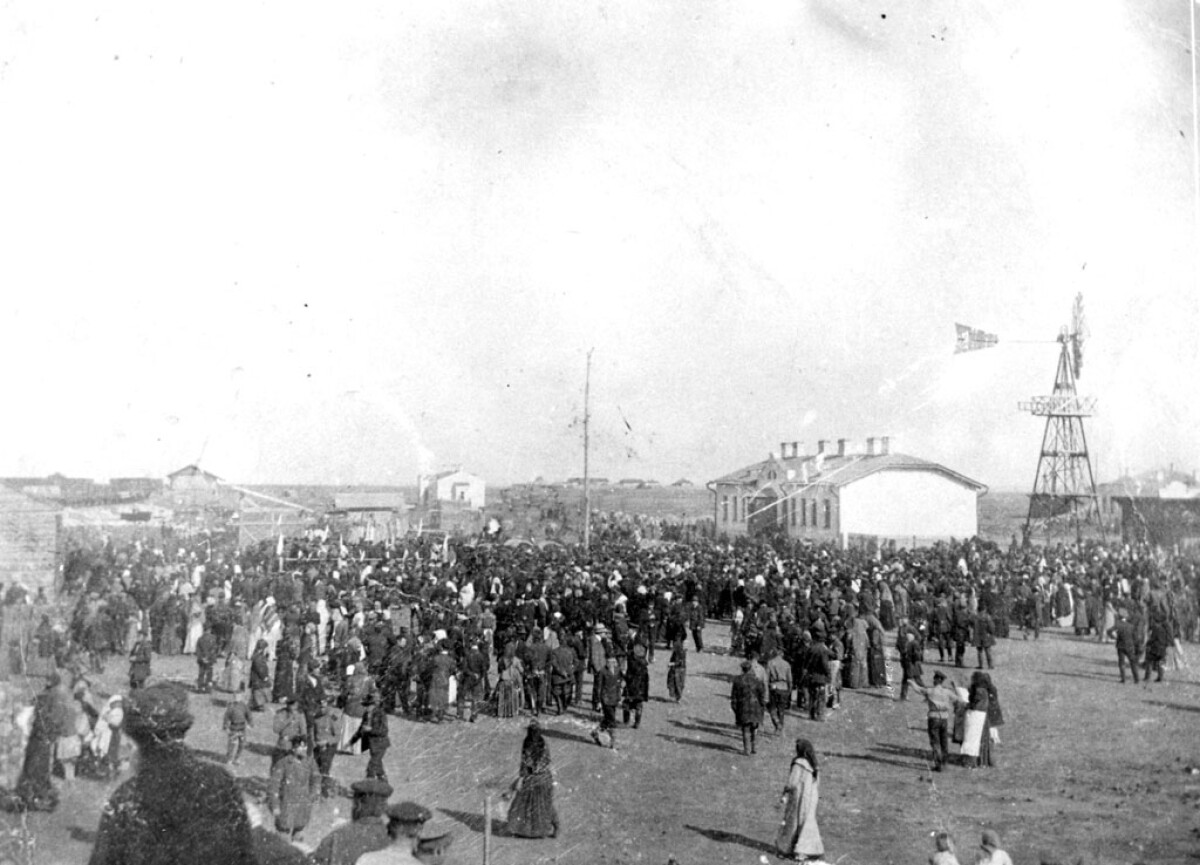
In the conditions of the modern state the question of education and settling of Kustanay district is quite often brought up. But up to today we have separate information as, under what circumstances Kazakhs of edge were settled.
Now it is very important to learn dynamics of development of Kustanay district which territory occupied northern part of modern Kazakhstan. Comprehensive study of history of settling of the district is necessary and is significant as after accession of Kazakhstan to Russia its history was considered through a prism of the Russian capitalism. Therefore today research of history of development of the Kustanay district of Turgay area at a boundary of the XIX-XX centuries is actual.
Formation of Turgay area started in the 60th years of the XIX century, but final addition of area started on October 21, 1868 (according to some data 1869) when area of the Orenburg Kyrgyz divided into two areas - Turgay and Ural. Borders of this area stretched from the Orenburg province in the north to areas Syr-Darya in the south, from Akmolinsk in the east to the Ural area in the West. It should be noted that exact definition of territorial borders of area isn't present and till today that complicates studying of space of area. According to F.Lobysevich and the territory of Turgaysky area was defined approximately in 420000 square versts. L.Ballyuzek considers that the territory of area didn't exceed 400000 square versts.
The structure of Turgay area included all average and east parts of the former area of the Orenburg Kyrgyz. At division of the steppe of the Orenburg Kyrgyz into two areas Turgaysky and Ural, control centers of these areas one of which was in the city of Torgay (The Orenburg strengthening) were defined also.
According to A.I.Dobromyslova's work "Turgay area", the earth of Turgay area were divided into four districts which number included also the Nikolaev (Kustanay) district. In turn each of districts consisted of volosts and auls. The Kustanay district consisted of 8 volosts (Amankaragay, Arakaragay, Dambar, Dzhitygarin, Mendykarin, Saroy, Suunduk, Chubar) and 51 auls.
It should be noted that owing to various economic and political circumstances the number of volosts changed. The increase in number of volosts was generally observed. With 1875 on 1894гг. there is an increase in volosts. Subsequently, in 1898 the Kustanay district already consisted of ten volosts - namely Mendykarinsk, Kinyaral, Ubagan, Karabalyk, Ara-karagay, Amankaragay, Dambar, Bektyubin, Dzhitygarin, Kumak.
At the beginning of 1894 districts were divided into even bigger number of volosts, including Kustanay. It consisted of 14 volosts (volosts existing till 1894 and 4 more neogenic - Dzhilkuar, Saroy, Suunduk, Chubar) and 88 auls.
Initially the population of the Kustanay district consisted of aboriginals of the steppe, and lived in the territory of eight volosts, namely - Amankaragay, Arakaragay, Dambar, Dzhitygarin, Mendykarin, Saroy, Suunduk, Chubar. Proceeding from materials "Turgay area" in 1880 there was a formation of the settlement of Kustanai that led to a flow of immigrants from various districts of the European Russia, in particular on the territory of the Kustanay district. With implementation of resettlement policy the number, national structure of the population of the district changed. Such considerable change of an ethnic situation in all area, in particular increase of the Russian-Ukrainian population caused very numerous and diverse changes in economic occupations of local population, social the economic relations that promoted complication of system of the public relations. It was an important condition for development of the Russian-Kazakh relations, establishment of mutual understanding of neighborliness and friendship of two people.
Lands and climatic conditions of the Kustanay district differed favorable climatic conditions for land economy that had a certain value for resettlement here Russian and the Ukrainian population from provinces of Russia. All this involved changes in population structure. In the Kustanay district the bulk of the Russian-Ukrainian population - 206926 people that made 45,6% from all Russian-Ukrainian population concentrated. In total number Russian-Ukrainian population within the district in seventeen years (1898-1915) increased by 6 times. Representatives lived more than twenty nationalities in districts of Turgaysky area at a turn of two centuries. The Kazakhs making absolute majority of the population, lived in all districts of area, including Kustanay. However, the specific weight of Kazakhs as a part of the population of the district (area) wasn't identical. If in Irgizsky and Turgaysky districts of the Kazakh population there were 95% of all population, in the Kustanay district it was made by 77,3%. Today the special attention is deserved by a question of population placement. This subject is studied absolutely insufficiently as on district results data on the number of the non-russian population in "Reviews of Turgay area" for different years and in works of pre-revolutionary Russian researchers strongly disperse that in turn complicates studying of this important question.
Literature
1 . Lobysevich F. Turgay area and its organization//Military collection. T.XXVIII. 1871 .
2 . Dobrosmyslov A.I. Turgay area. Historical sketch. T.2. - Tver, 1902.
3 . Kusainov K. Turgay: at a turn of two centuries. - Alma-Ata, 1994.
Nurusheva Gulmira Keldybayevna
Kazakhstan, Kostanay state university named after A.Baytursynov

